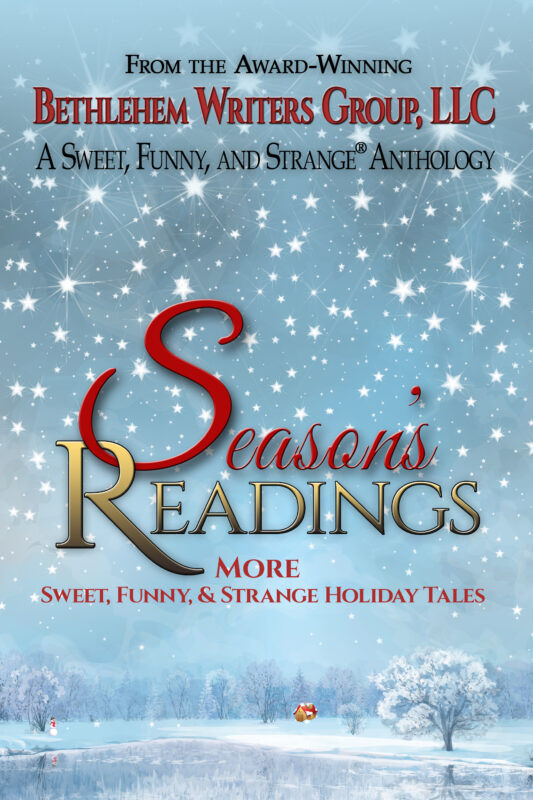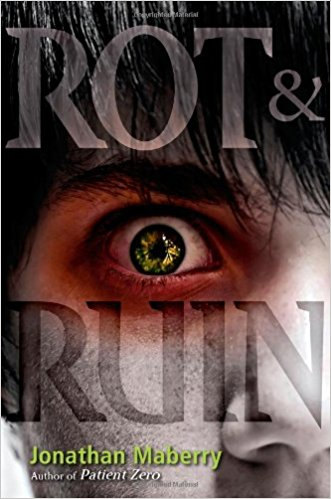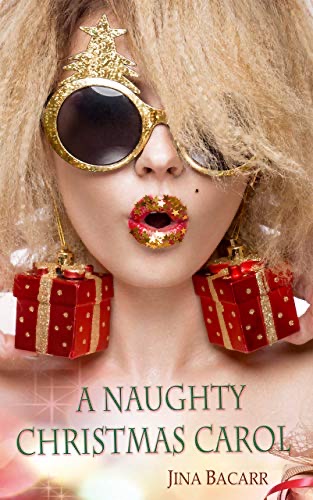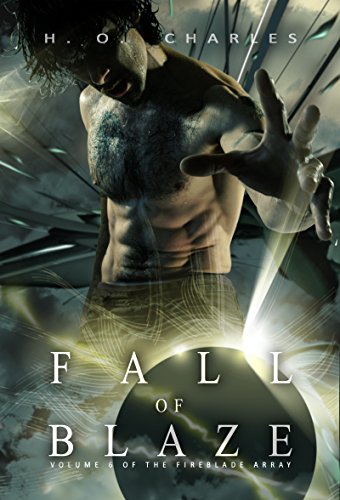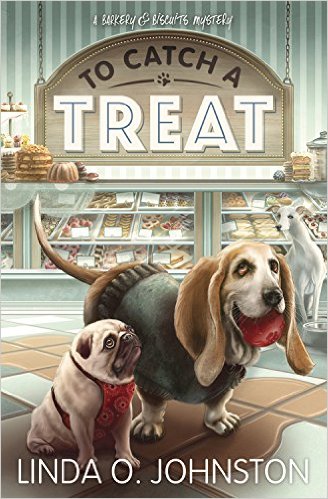Another New Release by Linda O. Johnston
October 6, 2018 by Linda O. Johnston in category Pets, Romance & Lots of Suspense by Linda O. Johnston tagged as 25 Novels, 50 Novels, Bragging, Harlequin, Linda O. Johnston
Another New Release
Okay, blogs are for bragging.
Well, maybe not. But that’s kind of what I’m doing here today. My second K-9 Ranch Rescue novel for Harlequin Romantic Suspense, Trained to Protect, is an October release.
It’s got romance. It’s got suspense. It’s got dogs. So it has to be good, right?
I definitely hope so.
Plus, it’s a milestone in several ways. I received recognition at this year’s Romance Writers of America Conference in Denver for my 25th published work with Harlequin. That included novellas. But this month I also receive, online, recognition that Trained to Protect is my 25th Harlequin novel. Plus, I’ve published 50 novels of all genres, including mysteries.
Okay, enough patting myself on the back—although it feels good. Let me just note that it’s hard to believe that this year is rushing by so quickly. I know they all do, of course, but the fact that it’s October already feels surprising. So . . . Boo! I won’t be blogging here again till after Halloween, so have a good, scary, chocolate-filled one!
Linda

And here is the book!
1950s COMIC BOOKS – CONSPIRACY OR SCARE? by Will Zeilinger
October 3, 2018 by Janet Elizabeth Lynn and Will Zeilinger in category Partners in Crime by Janet Elizabeth Lynn & Will Zeilinger tagged as 1950s, comics, Congress, Partners in Crime
1950s COMIC BOOKS – CONSPIRACY OR SCARE?
Many of us in the “Baby Boom” generation remember collecting soda pop bottles and turning them in for a few cents each or saving our allowance to buy one of our favorite comic books for a dime. In the 1950s it could be anything from Archie, Superman and Lois Lane, or Blackhawk, to Tales from the Crypt or G.I. Joe. We would sneak off somewhere and devour the latest adventures of our choice.
The truth is we had our noses in comic books like young people of today have their eyes and thumbs glued to their electronic devices.

According to historian Michael A. Amundson, there was an altruistic rationale for some comic books. Familiar comic book characters helped ease young readers’ fear of nuclear war and neutralize anxiety about the questions posed by atomic power. For example, characters from the Blondie comic strip were used in the Educational Comic (EC) book Dagwood Splits the Atom. It was also during this period that long-running humor comics debuted, including EC’s Mad comics and Carl Barks’ Uncle Scrooge in Dell’s Four Color Comics (both in 1952).
Little did we know something more sinister was brewing to which most of us were totally oblivious.

Congress Gets Involved
In 1953, the comic book industry hit a major setback when the United States Senate Subcommittee on Juvenile Delinquency was created in order to investigate the problem of juvenile delinquency. This was a publicity thing to satisfy the passions of the do-gooders.
Estes Kefauver, who had run for the Presidency in 1952, and held hearings on organized crime a few years before, extended the reach of his committee and met in New York City to investigate comic books. They had several people testify.
This was followed by the publication of Fredric Wertham’s Seduction of the Innocent the following year (that claimed comics sparked illegal behavior among minors) comic book publishers were subpoenaed to testify in public hearings. As a result, the Comics Code Authority was created by the Association of Comics Magazine Publishers to enact self-censorship by comic book publishers.
Seal of Approval
 The word quickly spread about what the new standards would be. In fact, this served the interests of concerned parent groups, who were active locally. That would be where the real action happened—not from the top, but from the pressure of people on the stores, on the distributors, from churches and PTAs and others. For example, kids were encouraged to trade in (“swap”) “bad” comics for “good comics.”
The word quickly spread about what the new standards would be. In fact, this served the interests of concerned parent groups, who were active locally. That would be where the real action happened—not from the top, but from the pressure of people on the stores, on the distributors, from churches and PTAs and others. For example, kids were encouraged to trade in (“swap”) “bad” comics for “good comics.”
Other communities collected comics and burned them! Trashed them! Some kids tried to protest, saying this was like the Nazi book burnings, but folks didn’t believe them. The main result, though, was the production of a new “Comics Code.”
For most kids of that era, comic books would still be bought, traded and read. The political winds of Washington would have little effect on them.
TWO Interviews with Rebecca Forster
October 2, 2018 by marianne h donley in category Interviews tagged as Author Interview, reading, Rebecca Forster, thrillers. writingWe’ve taken over Jann Ryan’s column this month, but don’t worry, she will be back in November.
TWO Interviews with Rebecca Forster
These two interviews first appeared on Bethlehem Writers Roundtable. Rebecca has graciously updated them for inclusion on A Slice of Orange.
Rebecca Forster marketed a world-class spa when it was still called a gym, did business in China before there were western toilettes at the Great Wall, and mucked around with the sheep to find out exactly how her client’s fine wool clothing was manufactured. Then she wrote her first book and found her passion.
Now, thirty-five books later, she is a USA Today and Amazon best-selling author and writes full-time. Most recently, she released the Finn O’Brien crime thrillers – three books about a shunned cop and his single-mother partner who work the meanest streets of Los Angeles while the Witness series continues to enthrall readers and listeners. Hostile Witness, the first book in the popular series, was released by Tantor Publishing and was voiced by Anne Marie Lee who most recently narrated Gillian Flynn’s, Sharp Objects.
She is a popular speaker at writing conferences as well as women’s and business groups and has taught at the acclaimed UCLA Writers Program. She is married to a Los Angeles Superior Court judge and is the mother of two grown sons. Alex is a talent manager and producer, and Eric who has been living overseas researching a book. Rebecca spends her free time traveling, sewing, and playing tennis.
Marianne: Did you grow up knowing you wanted to write? If not, when did you realize you were an author?
Rebecca: No, I didn’t even think about writing until I was in my thirties and then I only began because someone dared me to try. After going to college and graduate school, I worked in advertising. My client was married to an author I had never heard of–Danielle Steel! When I found out who she was, I made a comment to a colleague that “I could do that (write a novel).” My co-worker dared me to do it, and the rest is history. I had no idea I had it in me. However, I don’t think I really thought of myself as an author until my eighth or ninth book. I kept thinking each published book was a fluke. Then one day I realized how deep my commitment was to writing and how passionate I was about becoming the best writer I could be. That was the day I became an author.
Marianne: You started writing contemporary romances and now write thrillers. How did that happen?
Rebecca: I look back on my romances and contemporary women’s fiction novels and realize almost every one of them dealt with a lawyer or some aspect of the law. I guess I thought writing about the law was really for men and especially men who were lawyers. I found my stride when I gave myself permission to write what I really loved. Well, that and my editor at Kensington basically fired me from romance. He said, “You can’t keep killing everyone before they fall in love.” That was a good hint I should change genres.
Marianne: You are not a lawyer, yet you write gripping legal fiction. What happened to the “write what you know” advice writers always seem to get?
Rebecca: The truth is I sort of ‘write what I know.’ My husband has had an amazing career, first as a federal prosecutor specializing in organized crime and terrorism, and then as a judge who handles high profile cases. Our circle of friends includes DEA agents, police, private eyes, court reporters, and lawyers of every ilk. Pretty much I’m a legal voyeur. I read the legal newspapers, watch the news. I love everything having to do with the law, but I never had a desire to actually become a lawyer. As much as I love the technical aspects of the law, I never forget a book is about characters. There is nothing more exciting than pitting a single person against a system. The justice system makes for great personal drama.
Marianne: How much research do you do for your books?
Rebecca: It really depends on the storyline. If it’s a courtroom drama, I do a lot of research including seeking help for appropriate cross-examination and how to explain a legal premise without it coming across like I’m presenting a research paper. Some of my books are more character driven and inspired by some aspect of the law but are not procedurals. When my characters don’t spend much time is spent in the courtroom, then the research is limited. My favorite research, though, was for Eyewitness. I researched the legal system in, of all places, Albania. My son was serving in the Peace Corps, and when we went to visit his village, I came away with an incredible story about the centuries-old system of cultural justice that I combined with our modern judicial system. I love that book.
Marianne: Tell us about your current book. Where can we buy your books?
Rebecca: I’m working on book number eight of The Witness Series and book number four of the Finn O’Brien Crime Thrillers. I actually hadn’t planned on writing Lost Witness but fans kept asking me “what happened to Billy?” I thought they would enjoy using their imaginations to determine an end for that character. Now that I know they want to know how I would handle his ending, I’m hard at work figuring it out. I hope everyone is happy when they finally find out what happens to Billy. The next Finn O’Brien book is Intimate Relations. Finn and his partner, Cori, are turning into a wonderful duo. Instead of writing about Los Angeles in general, I am setting the crimes in the pockets of Los Angeles many people don’t know about like Little Ethiopia. It’s very exciting. And, of course, the big news is Tantor producing all seven of the current Witness Series books for audio. I just heard the first one and it’s so exciting.
You can purchase digital, paperback and audio copies of my work on every online bookstore – Amazon, Barnes & Noble, iBooks and so many others. You can also visit my website and find sample chapters, book club guidelines and, of course, link buttons.
Marianne: For over 25 years and 25 books, you were traditionally published. Why did you decide to launch your indie career?
Rebecca: One of the reasons was because of a book I wrote called Before Her Eyes. I truly wanted that book to have an audience. Good or bad, I just needed to put it out there. The book was inspired by my dad and my father in law’s illnesses. They passed within three months of one another, and I was privileged to witness what did pass ‘before their eyes’ at the end of their life. For me, there was no question but that book needed to be published and that I was going to have to do it myself. At some point, I think all authors have a ‘book of their heart’ that pushes their creative envelope. This was mine.
Also, the publishing world was changing. Bookstores were disappearing, publishers were not buying as much as they used to. I really felt it was my time to either move forward or retire after twenty-five years in the business. That was three years ago. I am so happy I moved forward. The creative freedom, the ease with which I can engage with readers, the ability to price my books reasonably are all reasons why being indie has been so fabulous.
Marianne: What do you know now that you wished you’d know before you went indie?
Rebecca: I wish I had created a better work model earlier so that my writing time was not given up for marketing time. Writers truly need to understand that whether they publish traditionally or as an indie, this is a business and not all about creativity.
Marianne: What advice would you give to emerging writers?
Rebecca: Develop your unique voice. The best compliment I ever had was when a reader said, “Even without a cover, I would know I was reading one of your books.” That’s what I think every author should strive for: defining and perfecting their voice. It takes a lot of trial and error, but when you ‘hear’ it, you’ll know.
~~~~~~~~Beginning second interview~~~~~~~~~~~~
Marianne: What’s the best thing about being an author?
Rebecca: Every experience, emotion, bit of knowledge, and dream I ever had or will have is relevant to what I do.
Marianne: What’s your writing day like?
Rebecca: I am up at 5:30, read the paper, clean at least one room in the house and then take my computer to Coffee Cartel and set up at my favorite table near the fake suit of armor. I’ve been going there for 17 years, almost every day. I write from about 8:00 a.m. To 2:00-3:00 p.m. I pack my lunch. In the evening I answer fan mail, emails, Twitter, Facebook and anything else that comes my way.
Marianne: Do you listen to music when you write?
Rebecca: I listen to talk radio and Pandora.com while I write. I have everything from Classic Baroque to Johnny Cash and show tunes on my playlist.
Marianne: In your books, who is your favorite character and why?
Rebecca: Here are two. Hannah Sheraton, the sixteen-year-old ward of attorney Josie Bates in The Witness Series is one of my favorites. She is beautiful and flawed; a kid and yet incredibly wise because she has had to fend for herself for so long. She is fiercely loyal and holds hope deep in her heart. I’d like to be as brave and loyal as Hannah. The second is Tessa, the heroine in BEFORE HER EYES. She’s a woman who objectively looks at her life – full of hard knocks, mistakes, misunderstandings – and forgives herself. As death closes in, Tessa understands that she played the hand she was dealt as best she could. Now that Finn and Cori have come on the scene though, I’d have to include them. I suppose, bottom line, an author can’t pick a favorite any more than a mother can pick a favorite child.
Marianne: You’ve written both romance and thrillers –very different genres. Why?
Rebecca: At the beginning of my writing career, romance/women’s fiction had guidelines that gave me parameters. I can’t thank the women’s fiction editors I worked with enough for their guidance. Because of them, I learned the craft and eventually found my true voice in thrillers. Really, though, it’s a matter of emphasis. Each of my romances had a thriller element, and each of the thrillers has a solid relationship.
Marianne: What’s your all-time favorite book?
Rebecca: For an indie book I would pick Eternal L.A. by Eric Czuleger (yep, my son). I love the vision for the future in this collection of short stories but what I really admire is that they are each about compassion and love in a time when the world seems to be all about technology
Marianne: What‘s on your To-Be-Read pile?
Rebecca: Eric Larsen’s, THE GARDEN OF THE BEASTS (nonfiction), BRAINRUSH, another Indie fiction by Richard Bard. THE LINCOLN LAWYER by Michael Connelly. A zillion magazines for research and for fun. I could go on.
Marianne: What’s your favorite song?
“Danny Boy.” When Johnny Cash sings it, I cry. “Ring of Fire,” of course. “Happy Birthday” because everyone smiles even though no one can sing it well.
Marianne: What’s your favorite movie?
Rebecca: These questions are hard! Prelude to a Kiss. Yep, a romantic comedy. Oh, and Beetlejuice. And Legally Blond. And Zombie movies. We see a lot of Zombie movies.
Marianne: You tell the funniest stories, why don’t you write humor?
Rebecca: I have a secret. One day my mother asked me “Why don’t you write books without bodies”. So, for her 89th birthday, I wrote the Bailey Devlin trilogy about a young woman who is struggling to make her way in the world and just as all her hard work is going to pay off, someone appears on her doorstep that changes her life. The Day Bailey Devlin’s Horoscope Came True is the first book and it’s free. It’s a sweet, funny, charming trilogy. No sex, lots of love, some laugh-out-loud moments.
Marianne: What’s the funniest (or sweetest or best or nicest) thing a fan ever said to you?
Rebecca: That if John Grisham and Lisa Scottoline had a literary child, it would be me!
Marianne: If you could be on a TV reality show which would it be.
Rebecca: Project Runway!
Marianne: If you could travel back in time, who would you like to meet and why?
Rebecca: A pioneer woman who walked beside a wagon across the desert in a long dress and high-topped boots, set down roots in the middle of nowhere, raised children without benefit of a ‘village.’ I would want to ask her if she was ever afraid, what did she love, who did she love.
Marianne: If a spaceship landed in your backyard and the aliens on board offered to take you for a ride, would you go? Why or why not?
Rebecca: I’d go in a snap, but they would have to take my husband and boys, too. We all love adventure. Recently, I landed on an aircraft carrier via tail hook and spent two ‘Top Gun” days on the U.S.S. Nimitz. If I can do that, I’d certainly head off in a spaceship!
Readers, writers, friends can contact me here:
- FOLLOW ME:
Marianne H. Donley, Featured Author of the Month
October 1, 2018 by marianne h donley in category Featured Author of the Month tagged as Featured Author of the Month, Marianne H. Donley, Untethered
Featruing Marianne H. Donley
Marianne H. Donley writes fiction from short stories to funny romances and quirky murder mysteries. She makes her home in Tennessee with her husband and son. Marianne is a member of Bethlehem Writers Group, Romance Writers of America, and Music City Romance Writers. She is pleased to annound that Untethered: Sweet, Funny, and Strange Tales of the Paranormal is available today! In addition to her story, “The Roman Coin” there are twenty-six other stories from the members of Bethlehem Writers Group, LLC included are the winning stories from the 2017 and 2018 Bethlehem Writers Roundtable Short Story Award by Suzanne Purvis and Christine Eskilson respectively. We’re sure you will enjoy this volumn of paranormal stories.
Do I REALLY Need a Pen Name?
September 30, 2018 by The Extra Squeeze in category The Extra Squeeze by The Extra Squeeze Team tagged as Newbie Publishing Questions, Pen Names, The Extra Squeeze
Dear Extra Squeeze Team, I want to write some cozy mysteries, and I’ve already published a few romances under my own name. Do I REALLY need a pen name for the cozy mysteries?

Rebecca Forster
USA Today Bestselling author of 35 books, including the Witness series and the new Finn O’Brien series.
I think cozy mystery and romance go very well together. Your existing romance base will embrace your cozies and when the cozies catch on those readers will appreciate your romances. Because my thrillers are a bit hard-edged, I found my readers weren’t really open to reading my romances. The genres and styles were just too far apart. In your case, build your name and your brand on these sister genres (unless, of course, your romance is erotica).
Robin Blakely
PR/Business Development coach for writers and artists; CEO, Creative Center of America; member, Forbes Coaches Council.
You need a pen name for your new work if you need to separate the brand to offer clarity in the market place for your separate audiences of readers. If all of your books would be enjoyed by the same audience of readers, you don’t need to divide the brand. The more you can write for one community of readers, the more successful you can become. Make sure that you know what is most important to your readers about your brand and then do everything you can to define your brand with care and clarity. Feel confused? Try thinking of your brand as a popular ice cream chain. If your readers love Baskin Robbins because they expect to find buckets of ice cream inside, imagine how disappointed and shocked they would be to enter the store and discover buckets of gravy suddenly sold next to their favorite ice cream. No one goes to the ice cream parlor for gravy. Baskin Robbins is not a gravy store. Even if ice cream lovers like gravy, they won’t believe in the gravy at Baskin Robbins—it just isn’t right. But, ice cream lovers might be easily persuaded to buy an ice cream cake at the ice cream shop. They might buy some milkshakes or popsicles. If your work makes sense under the roof of the same author brand name, do it. If not, separate the products so audiences understand your brand with clarity.

Jenny Jensen
Developmental editor who has worked for twenty plus years with new and established authors of both fiction and non-fiction, traditional and indie.
Authors often use a pen name to avoid any confusion from crossing genres. It’s a tried and true strategy. If your Romances have done well then you have established a reader base that you can build on to sell more Romance. Those readers have already read your work and (presumably) know they like it and will know what to expect when they see a new book by you. I wouldn’t go so far as to say this fan base would reject you outright if they bought your next book expecting a Romance and got a Cozy instead. I would suggest that it could confuse future sales ‑ especially among hard-core Romance readers.
By using a pen name for your Cozy Mystery you’ll need to build a new reader base, but if the work is good then it certainly can be done. After all, you’ve done it before with your Romance books. And you can cross-market on your existing Romance platform for a kick-start and branch out to reach the Cozy enthusiasts. There’s no reason to be coy about it when marketing. The fact that you could honestly say on your author page: “Augusta B. Christie is the pen name for the cozy mysteries written by Babs Cartland, who’s Romances are loved by many”. This would show you as a writer with a body of work and a following.
So many successful writers use pen names for different genre, J.K. Rowling being an outstanding example. Wanting to set her modern PI series apart from the unique world of Harry Potter (and any reader expectations of) she published the Strike books as Robert Galbraith. Never was any secret about that and the different pen names helped to differentiate the books and establish reader expectations.
Jennifer Ashley, an awesome, versatile writer, uses three pen names to cover the different genres she writes: Jennifer Ashley for contemporary, paranormal and historical romance, urban fantasy and paranormal as Allyson James, and mysteries as Ashley Gardner. She unabashedly markets her books as Jennifer Ashley writing under the other pen names as well. Each of her books are different and wonderful just as each of Galbriath’s/Rowling’s are and the pen names clearly identify the genre to her market.
Of course the use of a pen name for your Cozies just to set them apart from your Romance market won’t be effective unless you build your marketing platform(s) to reach each type of reader. And your work must be strong enough to grab and grow a following; that means write, rewrite thoughtfully and use a skilled editor, regardless of your pen name. Just sayin’…

H.O. Charles
Cover designer and author of the fantasy series, The Fireblade Array
No, you don’t HAVE to have a separate pen name. It depends upon the brand you want to build If you want readers to come to you for romance and nothing else, then create another pen name. If you think your romance readers could be interested in your mystery work, then stick with the same name. It sometimes helps to have a small beginner audience for a new set of books to get reviews going, etc. So, depending on how large your existing audience is (i.e. if it’s already several tens of thousands), it might be worth sticking to the same name.
Affiliate Links
A Slice of Orange is an affiliate with some of the booksellers listed on this website, including Barnes & Nobel, Books A Million, iBooks, Kobo, and Smashwords. This means A Slice of Orange may earn a small advertising fee from sales made through the links used on this website. There are reminders of these affiliate links on the pages for individual books.
Search A Slice of Orange
Find a Column
Archives
Featured Books
SEASON’S READINGS: More Sweet, Funny, and Strange Holiday Tales
We hope you enjoy these holiday gifts.
More info →ROT & RUIN
In the zombie-infested, post-apocalyptic America where Benny Imura lives, every teenager must find a job by the time they turn fifteen . . .
More info →A NAUGHTY CHRISTMAS CAROL
What if Scrooge was a tall, dark, and oh so sexy Wall Street billionaire?
More info →FALL OF BLAZE
The Darkworld turns ever more slowly, and its skies grow bleaker by the hour.
More info →TO CATCH A TREAT
When a Dog-Snatching Scheme Leads to Murder, Carrie Must Sniff Out the Truth.
More info →Newsletter
Contributing Authors
Search A Slice of Orange
Find a Column
Archives
Authors in the Bookstore
- A. E. Decker
- A. J. Scudiere
- A.J. Sidransky
- Abby Collette
- Alanna Lucus
- Albert Marrin
- Alice Duncan
- Alina K. Field
- Alison Green Myers
- Andi Lawrencovna
- Andrew C Raiford
- Angela Pryce
- Aviva Vaughn
- Barbara Ankrum
- Bethlehem Writers Group, LLC
- Carol L. Wright
- Celeste Barclay
- Christina Alexandra
- Christopher D. Ochs
- Claire Davon
- Claire Naden
- Courtnee Turner Hoyle
- Courtney Annicchiarico
- D. Lieber
- Daniel V. Meier Jr.
- Debra Dixon
- Debra H. Goldstein
- Debra Holland
- Dee Ann Palmer
- Denise M. Colby
- Diane Benefiel
- Diane Sismour
- Dianna Sinovic
- DT Krippene
- E.B. Dawson
- Emilie Dallaire
- Emily Brightwell
- Emily PW Murphy
- Fae Rowen
- Faith L. Justice
- Frances Amati
- Geralyn Corcillo
- Glynnis Campbell
- Greg Jolley
- H. O. Charles
- Jaclyn Roché
- Jacqueline Diamond
- Janet Lynn and Will Zeilinger
- Jaya Mehta
- Jeff Baird
- Jenna Barwin
- Jenne Kern
- Jennifer D. Bokal
- Jennifer Lyon
- Jerome W. McFadden
- Jill Piscitello
- Jina Bacarr
- Jo A. Hiestand
- Jodi Bogert
- Jolina Petersheim
- Jonathan Maberry
- Joy Allyson
- Judy Duarte
- Justin Murphy
- Justine Davis
- Kat Martin
- Kidd Wadsworth
- Kitty Bucholtz
- Kristy Tate
- Larry Deibert
- Larry Hamilton
- Laura Drake
- Laurie Stevens
- Leslie Knowles
- Li-Ying Lundquist
- Linda Carroll-Bradd
- Linda Lappin
- Linda McLaughlin
- Linda O. Johnston
- Lisa Preston
- Lolo Paige
- Loran Holt
- Lyssa Kay Adams
- Madeline Ash
- Margarita Engle
- Marguerite Quantaine
- Marianne H. Donley
- Mary Castillo
- Maureen Klovers
- Megan Haskell
- Melanie Waterbury
- Melisa Rivero
- Melissa Chambers
- Melodie Winawer
- Meriam Wilhelm
- Mikel J. Wilson
- Mindy Neff
- Monica McCabe
- Nancy Brashear
- Neetu Malik
- Nikki Prince
- Once Upon Anthologies
- Paula Gail Benson
- Penny Reid
- Peter Barbour
- Priscilla Oliveras
- R. H. Kohno
- Rachel Hailey
- Ralph Hieb
- Ramcy Diek
- Ransom Stephens
- Rebecca Forster
- Renae Wrich
- Roxy Matthews
- Ryder Hunte Clancy
- Sally Paradysz
- Sheila Colón-Bagley
- Simone de Muñoz
- Sophie Barnes
- Susan Kaye Quinn
- Susan Lynn Meyer
- Susan Squires
- T. D. Fox
- Tara C. Allred
- Tara Lain
- Tari Lynn Jewett
- Terri Osburn
- Tracy Reed
- Vera Jane Cook
- Vicki Crum
- Writing Something Romantic
Affiliate Links
A Slice of Orange is an affiliate with some of the booksellers listed on this website, including Barnes & Nobel, Books A Million, iBooks, Kobo, and Smashwords. This means A Slice of Orange may earn a small advertising fee from sales made through the links used on this website. There are reminders of these affiliate links on the pages for individual books.



















